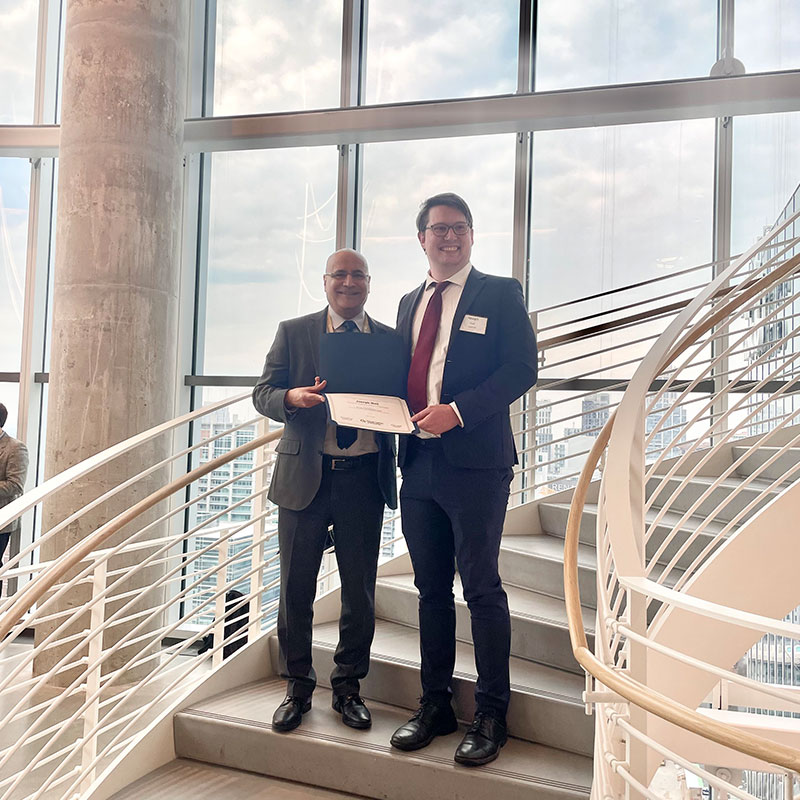The Financial Services Innovation Lab at the Scheller College of Business at the Georgia Institute of Technology and the Federal Reserve Bank of Atlanta hosted the second annual Household Finance Conference on March 21 and 22, 2024. Academic luminaries, policymakers, and industry experts congregated over two days to dissect the latest trends in household finance. Among the highlights were sessions led by esteemed speakers shedding light on pressing economic concerns and offering insightful analyses.
With a focus on the complex financial landscape households have faced in recent years, the conference delved into multifaceted issues such as escalating interest rates, reforms in student loans, stringent monetary policies, fluctuations in housing and mortgage markets, and more. Given the magnitude of decisions households are compelled to make, ranging from investments to consumer credit and retirement plans, the event aimed to foster transformative ideas through collaborative efforts.
Dean Anuj Mehrotra emphasized the necessity for collective action in his opening remarks, stating, “We hope through opportunities like this conference we can create transformative ideas for all of us to pursue together. Not one school will be able to solve these problems alone, and we have to help each other and collaborate.”
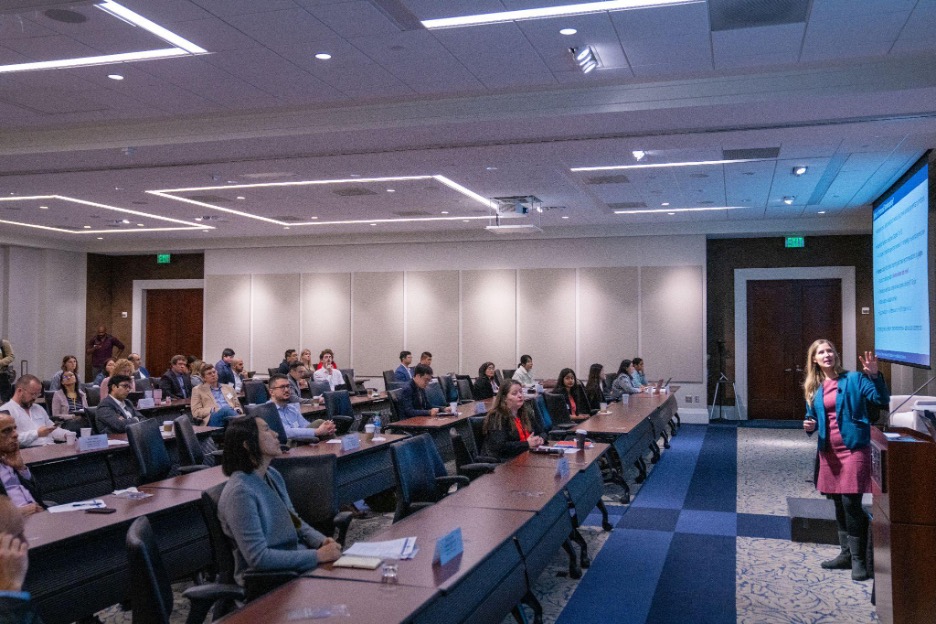
In the inaugural session on current economic conditions, Michael Weber from Chicago Booth School of Business delivered a thought-provoking discourse on "The Long-Term Effects of Inflation on Inflation Expectations." Joshua Thorton from Baylor University presented "Friends with Benefits: Social Capital and Household Financial Behavior," showcasing data indicating that a causal connection exists between household financial behavior and the income of one's friends, leading to greater social interaction with affluent individuals, which in turn correlates with heightened participation in stock markets and savings.
Throughout day one of the conference, six comprehensive sessions addressed a myriad of topics, ranging from small business lending to the impact of fintech innovation. Notable among these was the segment exploring "Financial Advisors and Investors’ Bias," featuring Marianne Andries, University of Southern California, who found that altering advisors' information decreases clients' bias, leading to higher returns, more clients, and lower attrition. Sergey Sarkisyan, The Wharton School, University of Pennsylvania, presented on “Instant Payment Systems and Competition for Deposits," where he analyzed how Brazil's Pix instant payment system affected bank competition, revealing that it boosts deposit competition by empowering small banks to offer more convenient services, resulting in increased small bank deposits relative to large banks and higher welfare for depositors, indicating the potential of universally available payment systems to enhance banking competition.
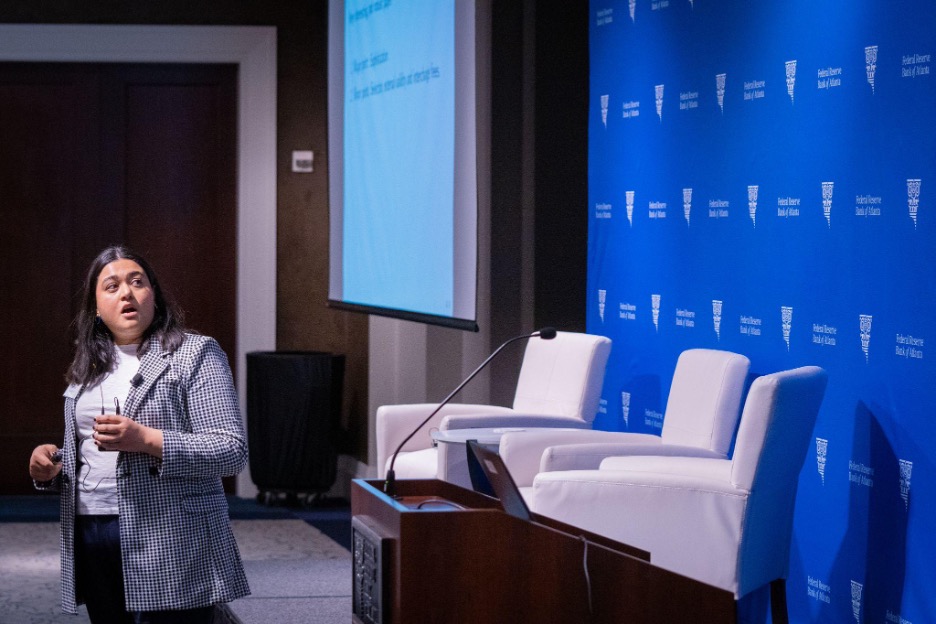
The event also showcased a Young Scholar’s Session, where promising Ph.D. paper authors presented their research. Joseph Hall from the Stanford Graduate School of Business clinched the prestigious award for his paper on "Credit Cards and Retail Firms: Historical Evidence from the U.S."
Day two at the Federal Reserve Bank of Atlanta was characterized by dynamic discussions on retirement, savings, and various dimensions of household finance. Bin Wei, of the Federal Reserve Bank of Atlanta, set the stage for an introduction of a series of engaging presentations and discussion topics such as consumer finance, race, bankruptcy, and credit card rewards.
Taha Choukhmane of MIT Sloan School of Management, presented his recent publication, “How do Consumers Finance Increased Retirement Savings?”, which studied the effects of increasing retirement savings on consumption, total savings, borrowing, and welfare. Kunal Sachdeva, Rice University, Jones Graduate School of Business, presented her findings on, “Missing the Target? Retirement Expectations and Target Date Funds”, which showed that individuals consistently underestimate their long-term labor participation, with errors in retirement planning costing an average of 12% of certainty equivalent wealth.
Carlo Wix, of the Federal Reserve Board, presented “Who Pays For Your Rewards? Redistribution in the Credit Card Market” unveiling surprising findings on credit score correlations and consumer spending behaviors. Filipe Corriea, of the University of Georgia Terry College of Business, presented on “The Online Payday Loan Premium” which highlighted the pressing issue of online payday loans, emphasizing the need for regulatory attention.
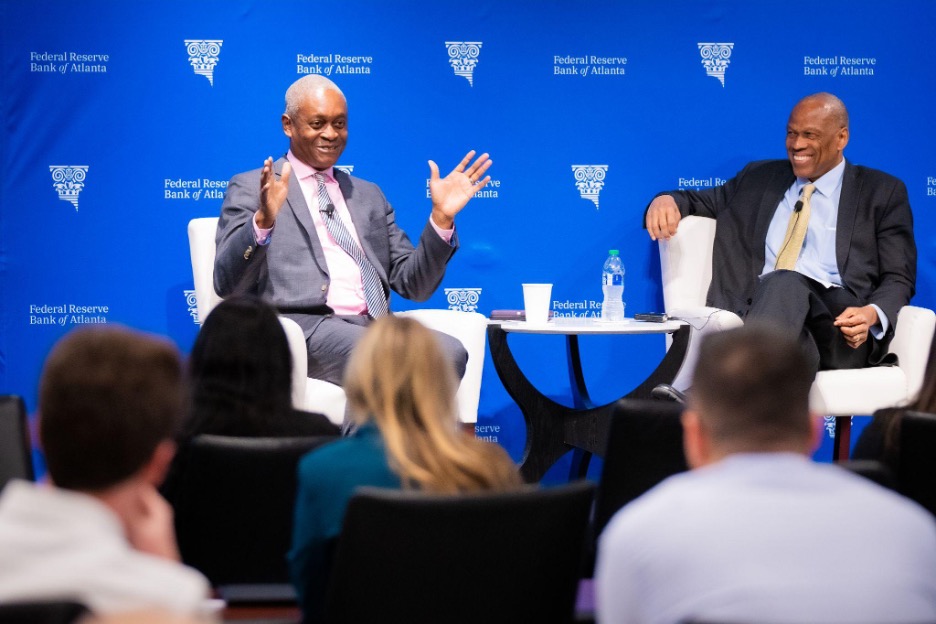
Thought-provoking discussions ensued on the potential impact of changes in the payment system on student debt education, led by Michael Boutros of the Bank of Canada, where he discussed his publication, “Borrow Now: Pay Even Later: A Quantitative Analysis of Student Debt Payment Plans.” The session on refinancing friction, mortgage pricing, and redistribution provided valuable insights into mortgage markets, with “Refinancing Frictions, Mortgage Pricing and Redistribution,” Konstantin Milbradt of Northwestern Kellogg School of Management, offering perspectives on cross-subsidies and fintech impacts.
Closing out the conference, President Bostic underscored the importance of gaining a nuanced understanding of our economic landscape and fostering inclusivity in financial discourse. He urged communities to engage in meaningful conversations to dispel myths and barriers, emphasizing the value of collective participation in addressing societal challenges such as affordable housing for all.
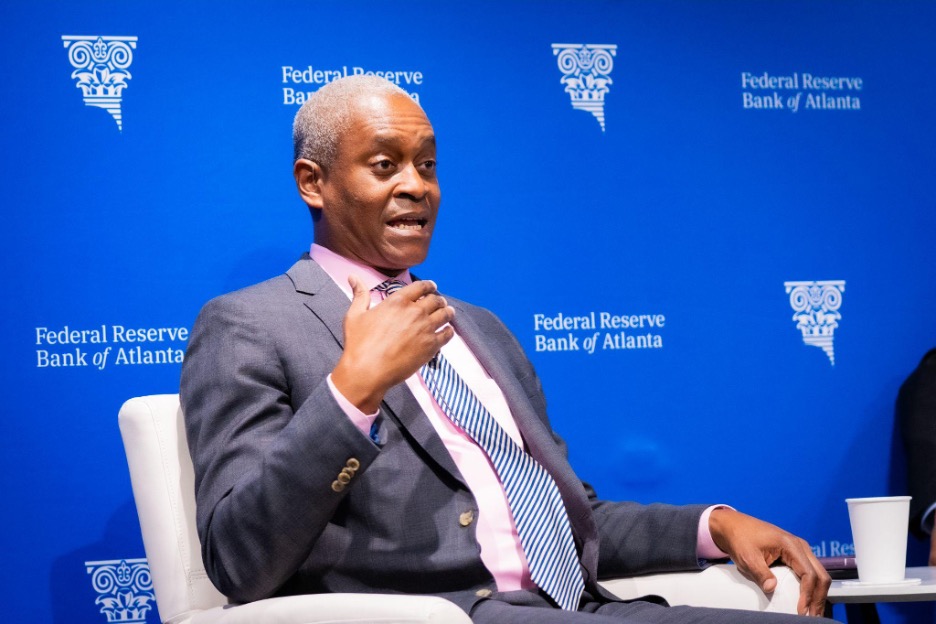
The conference received hundreds of submissions, out of which 12 papers were selected for the final program with the assistance of the program committee. A special thank you to the organizing committee: Professor Sudheer Chava, Alton M. Costley Chair Professor of Finance at Scheller College of Business, Manasa Gopal and Debasmita Das of the Scheller College of Business at Georgia Institute of Technology, and Kristopher Gerardi, Camelia Minoiu, and Bin Wei of the Federal Reserve Bank of Atlanta.
See the 2024 Conference Agenda
Learn More About the Financial Services Innovation Lab
About Georgia Tech's Financial Services Innovation Lab
Georgia Tech's Financial Services Innovation Lab, also known as GT FinTech Lab, is a leading hub for finance education, research, and industry collaboration in the Southeast. Directed by Dr. Sudheer Chava, Alton M. Costley Chair Professor of Finance at Scheller College of Business, GT Fintech Lab fosters experiential learning for students across all levels and sponsors cutting-edge projects in Machine Learning (ML), Natural Language Processing (NLP), and Equity Research, alongside vibrant student clubs. With a focus on advancing responsible finance through AI innovations, the Lab collaborates with industry giants like Equifax and FiServ to address critical issues in credit access and the impacts of economic shocks on consumers and small businesses. Researchers at the FinTech Lab are renowned for their extensive publications and presentations at top finance conferences, driving impactful advancements in finance academia.
